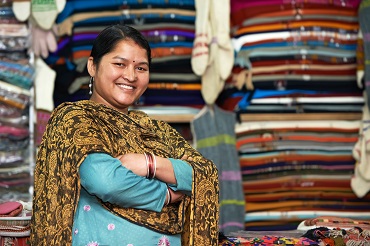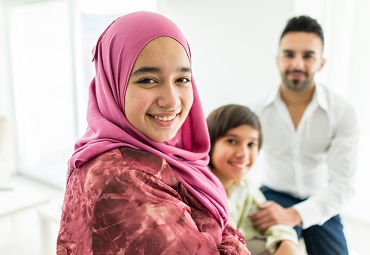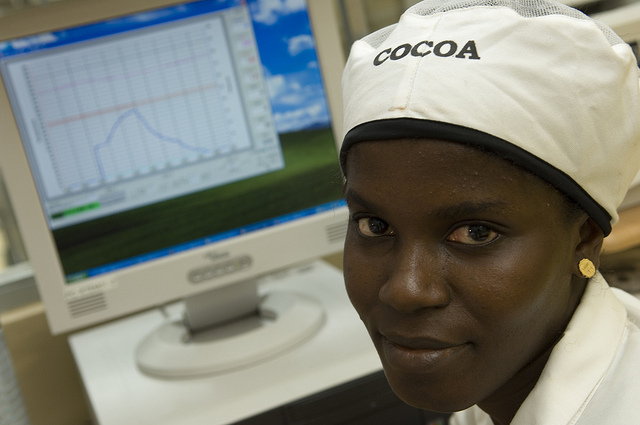Blog
GPFI Workshop New Approaches to Closing Finance & Data Gaps for Women-led Businesses Summary of Proceedings

Access to finance has always been a significant constraint for women entrepreneurs, hindering their growth prospects. Lack of sex-disaggregated data has made it difficult to close the $1.7 trillion gap in financing faced globally by over 400 million women-owned businesses.
A GPFI Workshop on “New Approaches to Closing Finance & Data Gaps for Women-Led Businesses” was held on July 21, 2022. The event focused on discussing measures – including providing inputs into the new global Women Entrepreneurs (WE) Finance Code – that may be implemented by countries to take GPFI recommendations on sex-disaggregated data into concrete actions. Co-sponsors of the event included the SME Finance Forum, the WE Finance Initiative (WE-FI), the International Finance Corporation (IFC), the Asian Development Bank (ADB), the Financial Alliance for Women (FAW), the Women20 (W20), the Organization for Economic Cooperation and Development (OECD) and Data2X.
Doni P. Joewono, Deputy Governor of Bank Indonesia, opened the workshop underlying the importance of a data-driven approach to close the gender gap, especially for MSMEs access to finance. He noted that collecting sex-disaggregated data to formulate policy initiatives is critical to implementing Indonesia’s National Strategy for Financial Inclusion.
In her opening remarks, Magda Bianco, Co-Chair of GPFI, welcomed the opportunity to learn about those measures that are effectively contributing to fill existing MSME data gaps and how they may be scaled across countries to encourage data harmonization, a priority for the GPFI.
Matthew Gamser, CEO of the SME Finance Forum, commented on the importance of this issue for the data harmonization work of the GPFI. Underlying the difficult task ahead, he also noted the importance of working across the whole financial ecosystem.
Three models for collecting sex-disaggregated data were presented in the Workshop:
· Francis Evans, Head of Business Finance, UK Business Growth Directorate, presented the UK Investing in Women Code, a strong partnership between financial institutions, trade associations and government that has led over 160 UK financial institutions to start tracking and reporting MSME data on a sex-disaggregated basis. Mr. Evans highlighted two success factors of the UK Code, which is the model for the global WE Finance Code: i) the substantial commitment to action by domestic financial institutions; and ii) the need to gain wide support among banks and to build data collection capabilities. He also noted the flexibility of the model to be adapted to different local situations. The Code was launched in the UK as a result of the Rose Review of Female Entrepreneurship, now in its third year.
· Celine Kauffmann, Head of Entrepreneurship, SMEs & Tourism Division at the OECD, shared the challenges of collecting sex-disaggregated date for MSMEs based on the OECD Scoreboard. While the tool provides information on aggregate MSME financing trends and policies for 48 countries around the world from 2007 through 2021, she recognized the challenges faced in collecting sex-disaggregated data.
· Wendy Teleki, Head of the WE-FI Secretariat, introduced the WE Finance Code, a proposed global framework to systematically address data gaps in financing and supporting women entrepreneurs. Similar to the UK, the Code will ask signatories to pledge to three actions, including reporting on an aggregate basis a finite number of sex-disaggregated indicators related to financing women-led firms. An annual report would enable benchmarking and data-driven actions by the financial ecosystem to increase access to finance for women entrepreneurs. To encourage a global adoption by as many financial institutions as possible, the Code will provide a framework that may be adapted to local needs. Financial institutions would be able to sign up to the global Code, but national efforts would be encouraged wherever possible. Such efforts will be implemented by local champions, including national actors facilitating industry-wide participation. The Code is being developed through consultation with a broad set of stakeholders; in this regard, Ms. Teleki invited participants to reach out to get involved.
A panel on on-going country initiatives in Nigeria, Honduras and the Netherlands from a public sector perspective was moderated by Rebecca Ruff, EVP, FAW. To set the context, Rebecca shared the key learnings from FAW’s recent diagnostics in six countries regarding gender-disaggregated data, which they learned catalyzes action by the financial ecosystem. The panelists (Alba Luz Valladares, Chief Commissioner of the National Commission of Banks and Insurance Companies of Honduras; Jaap Jansen from the Central Bureau of Statistics Netherlands; Paul Oluikpe, Head of Financial Inclusion, Central Bank of Nigeria) shared their experiences spotlighting the leading role the public sector can play in collecting sex-disaggregated data but reinforced the challenge of doing so for SMEs. Differences between the adopted models highlighted the flexibility needed to adapt a global framework to meet local needs.
A second panel featuring UK Finance, Citi Social Finance and the Development Bank of Nigeria focused on the practical considerations for tracking sex-disaggregated data. The panelists raised three areas where a global Code could help advance their efforts in this direction: i) the need to create trusted partnership between public and private sector and more standardized definitions of women-led MSMEs; ii) the importance of building the infrastructure for data collection; and iii) the importance of drafting an annual report, which may help signal commitment by the financial sector and create transparency while enabling benchmarking and the sharing of best practices through case studies.
The final panel – composed by Jessica Schnabel (Global Head of Banking on Women at IFC), Mahesh Uttamchandani (Practice Manager of the Finance, Competitiveness & Innovation Global Practice at the WB), Esselina Macome (Chief Executive Officer of FSD Mozambique) and Jessica Espinoza (Chief Executive Officer of the 2XCollaborative) – focused on the contribution multi-lateral development banks and other players in the financial ecosystem can add to closing the data gap.
Wempi Saputra, Assistant of the Minister for Macroeconomy and International Finance, Ministry of Finance, Indonesia, thanked participants for their active engagement in the workshop and on-going support to improve availability to sex-disaggregated data on access to finance for MSMEs, including through the WE Finance Code.
In closing, Ms. Teleki invited participants to reach out to participate in the consultative process during the planning phase of the WE Finance Code, which is scheduled to be launched with country pilots in Spring 2023.























